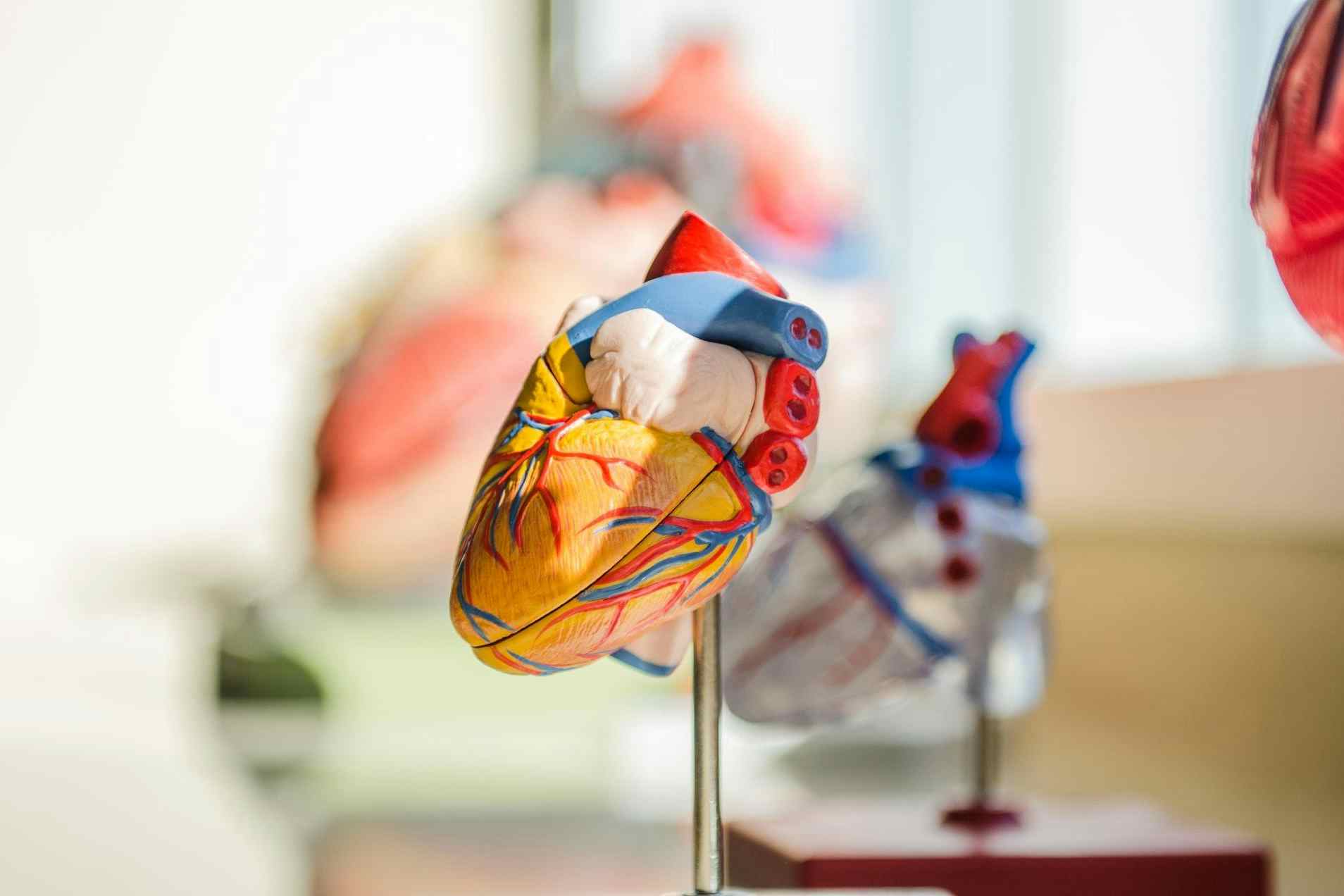Existing health issues, plus your lifestyle, age, and family history, may raise your risk of heart disease. These are known as risk factors.
Risk factors can be divided into two groups; modifiable and non-modifiable factors. Modifiable risk factors can be lowered or managed via changes in behaviour.
You can reduce your risk of cardiovascular disease by adopting specific lifestyle modifications. Smoking, high blood pressure, dietary intake,and exercise are a few examples.
Non-modifiable risk factors for cardiovascular disease are those that cannot be altered. These include, among other things, your person's age, race, and family history.
Cardiovascular disease is commonly referred to as "heart disease," although they are not the same thing. Heart disease is a catch-all phrase for illnesses that affect the heart muscle, structure, and function of the heart.
In contrast, cardiovascular disease is the umbrella term for all heart conditions. However, not all cardiovascular disorders are heart ailments. A stroke, for example, affects blood veins in the brain but not the heart itself.
Coronary heart disease (CHD) is the most common cause of death among adults. Learning about the disease's origins and risk factors may help you prevent cardiac issues.
What are the causes of cardiovascular disease?
Plaque builds up in the arteries and blood vessels that flow to the heart, causing vascular disease. Coronary artery disease prevents vital nutrients and oxygen from reaching your heart.
Plaque is a waxy material composed of cholesterol, lipid molecules, and minerals. Plaque builds up over time when the inner lining of arteries is damaged by hypertension, cigarette smoking, or excessive cholesterol or triglycerides.
What are the signs and symptoms of cardiovascular disease?
Heart disease symptoms vary depending on the ailment and might include:
- Chest discomfort & pain
- Weakness or numbness in the legs or arms
- Extremely rapid or slow heartbeat or palpitations
- Lightheadedness, or faintness
- Swollen limbs
What are the medical risk factors for cardiovascular disease?
Being informed is vital when it comes to cardiovascular disease. Knowing the medical and behavioural heart disease risk factors might save your life.
Let's take a look at the medical risk factors:
1. High blood pressure
High blood pressure is a significant risk factor for cardiovascular disease. It occurs when the blood pressure in your arteries and other blood vessels becomes too high.
High blood pressure, if not regulated, may harm your heart and other vital organs, including your brain and kidneys.
Up to five million people in the United Kingdom have untreated high blood pressure and are unaware that they are in danger.
High blood pressure is sometimes described as a "silent killer" since it usually shows no symptoms. This is because the only way to determine if you have high blood pressure is to take a blood pressure reading.
You may lower your heart disease and heart attack risk by lowering your blood pressure via lifestyle modifications or medication.
2. Unhealthy cholesterol levels
Cholesterol is a waxy, fat-like substance produced by the liver or present in various meals. Your liver creates enough cholesterol to suit your body's needs, but we often get more from the foods we eat.
If we consume more cholesterol than our bodies can utilise, the additional cholesterol may accumulate in the artery walls, especially the heart. This causes artery constriction and may reduce blood flow to the heart, brain, kidneys, and other body organs.
LDL (low-density lipoprotein) cholesterol is regarded as "bad" cholesterol because it may promote plaque accumulation in your arteries. In contrast, HDL (high-density lipoprotein) cholesterol is considered "good" cholesterol because greater levels give some protection against heart disease.
Statins are a class of medications that may help decrease blood levels of low-density lipoprotein (LDL) cholesterol.
In most cases, there are no signs or symptoms of high blood cholesterol. Therefore, examining your cholesterol levels is the only way to determine whether you have high cholesterol. In addition, your doctor may do a simple blood test called a "lipid profile."
3. Diabetes mellitus (type 2 diabetes)
Diabetes is one of the seven key risk factors for CVD, according to the American Heart Association (AHA).
Insulin is a hormone produced in the pancreas that helps transport glucose from the food you consume to your body's cells for energy. Unfortunately, if you have diabetes, your body either does not produce enough insulin or does not utilise insulin as effectively as it should.
Diabetes produces a buildup of blood sugar. As a result, people with diabetes are more likely to die from heart disease than those without diabetes.
Consult your doctor about strategies to avoid or manage diabetes, as well as how to address other risk factors.
Mr Inderpaul Birdi, Consultant Cardiac Surgeon, The Keyhole Heart Clinic, told Health Times: "Individuals with a family history of heart disease or stroke can significantly reduce their risk of cardiovascular events by controlling modifiable risk factors such as blood pressure, blood glucose and cholesterol. Wearable digital technologies can empower high-risk patients to take control of these factors, enabling doctors to intervene early and prevent damage. The future looks bright for those committed to reducing their cardiovascular risk with the help of these technologies."
4. Obesity
Obesity is an excess of body fat associated with higher "bad" cholesterol and triglyceride levels and lower "good" cholesterol levels. Obesity may cause high blood pressure, diabetes, and heart disease.
Excess weight increases blood cholesterol, triglycerides, and blood pressure while decreasing HDL cholesterol and increasing the risk of diabetes.
Discuss a strategy with your health care team to get your weight down to a healthy level and maintain a healthy weight.
5. Depression
According to research, those who are depressed have a greater risk of developing heart disease than the overall population.
Depression may cause various physiological changes that raise your chance of developing heart disease or having a heart attack. For example, excessive stress, chronic sadness, or both might increase your blood pressure.
In addition, depression raises your levels of a chemical called C-reactive protein (CRP). CRP is a biomarker for inflammation in the body. Higher-than-normal CRP levels have also been related to an increased risk of heart disease.
Depression may also cause a loss of interest in regular tasks. This includes everyday exercise, cleaning, socialising, and working.
Consult your doctor if you feel you are depressed. Professional assistance may help you get back on track to excellent health and may lessen the likelihood of cardiovascular disease.
What actions raise the risk of heart disease?
Your way of living might put you at risk for heart disease. Let's take a look at other major risk factors:
1. Unhealthy diet
A high-fat, trans-fat, and cholesterol-rich diet has been linked to heart disease and associated disorders such as atherosclerosis (buildup of cholesterol and fats in your artery walls), angina (chest pain), and heart failure. In addition, consuming too much salt (sodium) in the diet might elevate your blood pressure.
2. Lack of exercise
Inadequate physical activity may contribute to heart disease. It may also raise the likelihood of developing other risk factors, such as obesity, high blood pressure, high cholesterol, and diabetes. On the other hand, regular physical activity may reduce your chance of developing heart disease.
3. Excessive alcohol consumption
Excessive alcohol consumption may elevate blood pressure and increase the risk of heart disease. It also raises triglyceride levels in the blood, a fatty molecule that increases the likelihood of cardiovascular disease.
4. Smoking tobacco
Tobacco smoking raises the risk of cardiovascular disease and heart attack. In addition, cigarette smoking may harm the heart and blood arteries, increasing your chance of developing heart problems such as atherosclerosis and having a heart attack.
Nicotine causes blood pressure to rise. Cigarette smoke contains carbon monoxide, limiting the quantity of oxygen your blood can transport. Even nonsmokers might be at risk for heart disease if exposed to secondhand smoke.
Improve your heart health
Improve your health conditions by making the following lifestyle changes:
- Healthy eating
- Regular exercise
- Keep a healthy weight according to your body mass index (BMI)
- Reduce the amount of stress
- Quit smoking
- Consume food and alcohol in moderation
- Yearly physical examinations to identify anomalies and analyse risk factors
- Consume vitamins as directed by your doctor
- Understand the symptoms of a heart attack, heart disease, and stroke
One of the most effective strategies to avoid heart disease, heart attack, and stroke is to live a healthy lifestyle. So make heart disease prevention a priority.






